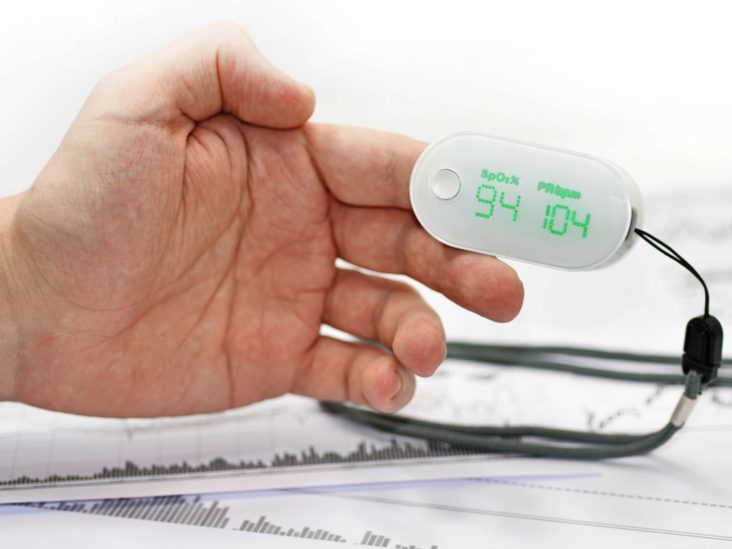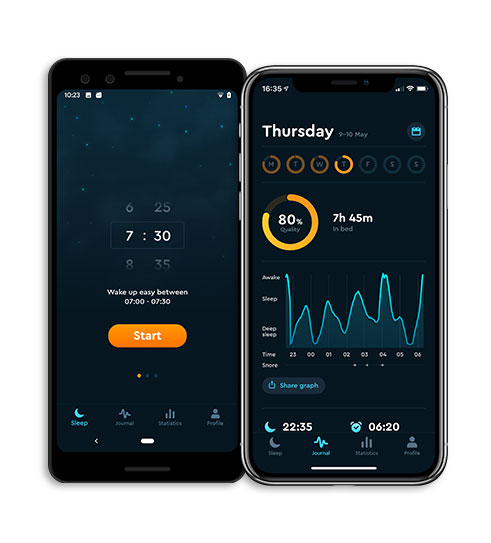A blood test called arterial blood gases done by your doctor or a lab tech. Being hypoxic means that not enough oxygen is getting to your bodys cells.
 Home Pulse Oximeters Can Help Diagnose Covid 19 Symptoms But It S Easy To Use It The Wrong Way The Washington Post
Home Pulse Oximeters Can Help Diagnose Covid 19 Symptoms But It S Easy To Use It The Wrong Way The Washington Post
Low oxygen levels in your blood can occur from time to time as the result of temporary physical or environmental conditions.

Why is my oxygen level low. You will likely have a headache due to low oxygen levels. There are two ways to measure it. In addition more than half of the patients had low levels of carbon dioxide which may diminish the impact of an extremely low oxygen level the researchers said.
Levels above 90 percent are not considered low so you probably are worrying unnecessarily. As oxygen levels drop in patients with COVID-19 the brain does not respond until oxygen falls to very low levels at which point a patient typically becomes short of breath said Tobin. A low blood oxygen level or hypoxemia can occur due to reduced environmental oxygen or a problem affecting the respiratory or circulatory system.
Some of the most common causes of hypoxemia include. A variety of conditions and circumstances can interfere with the bodys ability to deliver normal levels of oxygen to the blood. Certain medical conditions like COPD pneumonia emphysema bronchitis and pulmonary edema are also known to cause low levels of oxygen in the blood.
If your low oxygen levels are caused by heart disease its important to remember that failing to address low oxygen levels will further weaken your heart muscle. Your doctor may recommend that you enroll in a sleep study which measures oxygen drops while youre sleeping. Cardiovascular conditions that may contribute to hypoxemia include congenital heart defects or problems with the tissue of your heart that are present at birth.
Healthy lungs keep the blood oxygenated at a level between 95 and 100if it dips below 92 its a cause for concern and a doctor might decide to intervene with supplemental oxygen. Common causes of hypoxemia include. Low blood oxygen known as hypoxemia means that the level of oxygen in the blood has dropped below average normal levels due to one or more of many different causes.
There are essentially three basic factors that may cause your blood oxygen level to be low. Hypoxemia is a sign of a problem related to breathing or circulation and may result in various symptoms such as shortness of breath. You may be gasping or hyperventilating.
In many people with hypoxemia several factors contribute to the low blood oxygen level. Your heart may also be racing. There are two reasons for low oxygen levelsnot enough oxygen in your lungs or not enough blood going to your lungs.
3 You can test for these conditions by measuring your oxygen saturation level. Under most circumstances breathing room air normal readings range from 95 to 100 percent. While a low oxygen level or hypoxemia is a sign that something is wrong with your breathing or circulation it is not always an emergency.
If you think you have sleep apnea see a qualified doctor to get assessed and diagnosed. Hypoxemia is directly related to hypoxia which is low oxygen saturation in the bodys tissue. Inability of the.
This is often done with supplemental oxygen. Its trying to get more oxygen into the body and that means very specific mechanisms are being used. Cardiac issues also result in decreased levels of oxygen in the blood.
As previously mentioned hypoxemia is low oxygen saturation in the blood. Hypoxemia means there is a low level of oxygen in the blood. Hypoxemia or oxygen levels below the normal values may be caused by.
Locations of high altitudes where oxygen in the air is lower. Blood is needed to carry the oxygen to the rest of your body. Heart conditions including heart defects.
When your blood oxygen falls below a certain level you might experience shortness of breath headache and confusion or restlessness. When this happens it is generally not harmful to your health. A condition of the circulatory system may prevent your blood from reaching your body tissues.
Hypoxemia is determined by measuring the oxygen level in a blood sample taken from an artery arterial blood gas. Sleep apnea can lower oxygen levels since it causes people to stop breathing several times during the night. Hypoxemia is a below-normal level of oxygen in your blood specifically in the arteries.
Think of it like a train coming to pick something up at Grand Central Station your lungs and distributing it to different stations your body parts or tissue. Inability of the lungs to inhale and send oxygen to all cells and tissues. If your low oxygen levels are caused by lung disease its important to remember that keeping your blood oxygen level above 92 is important to protect your heart.
Your blood oxygen levels will usually go back to normal in short amount of time and no monitoring or management is required. Not enough oxygen in the air. Hypoxemia often causes hypoxia if the oxygen levels are quite low and remain so.
Your body has awakened you because of your low oxygen levels. Taking extremely strong pain medications can also result in the levels of oxygen in blood to decrease. If your blood oxygen level is too low you may need to boost your oxygen saturation.
Lung conditions such as asthma emphysema and bronchitis. When you experience a lack of oxygen in the body symptoms will vary depending on the severity of your hypoxemia. Reduced Environmental Oxygen and Hypoventilation.
A normal SpO2 level is vital to maintaining the health of all tissue in the body.










